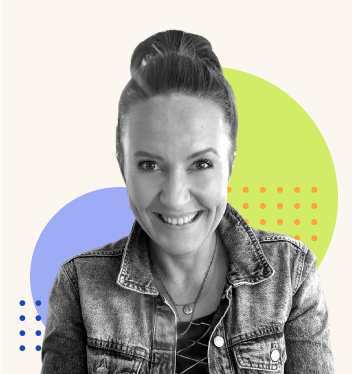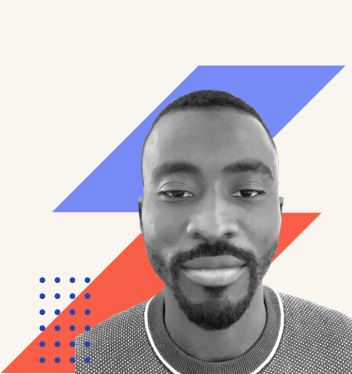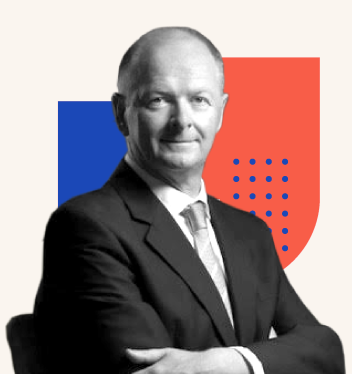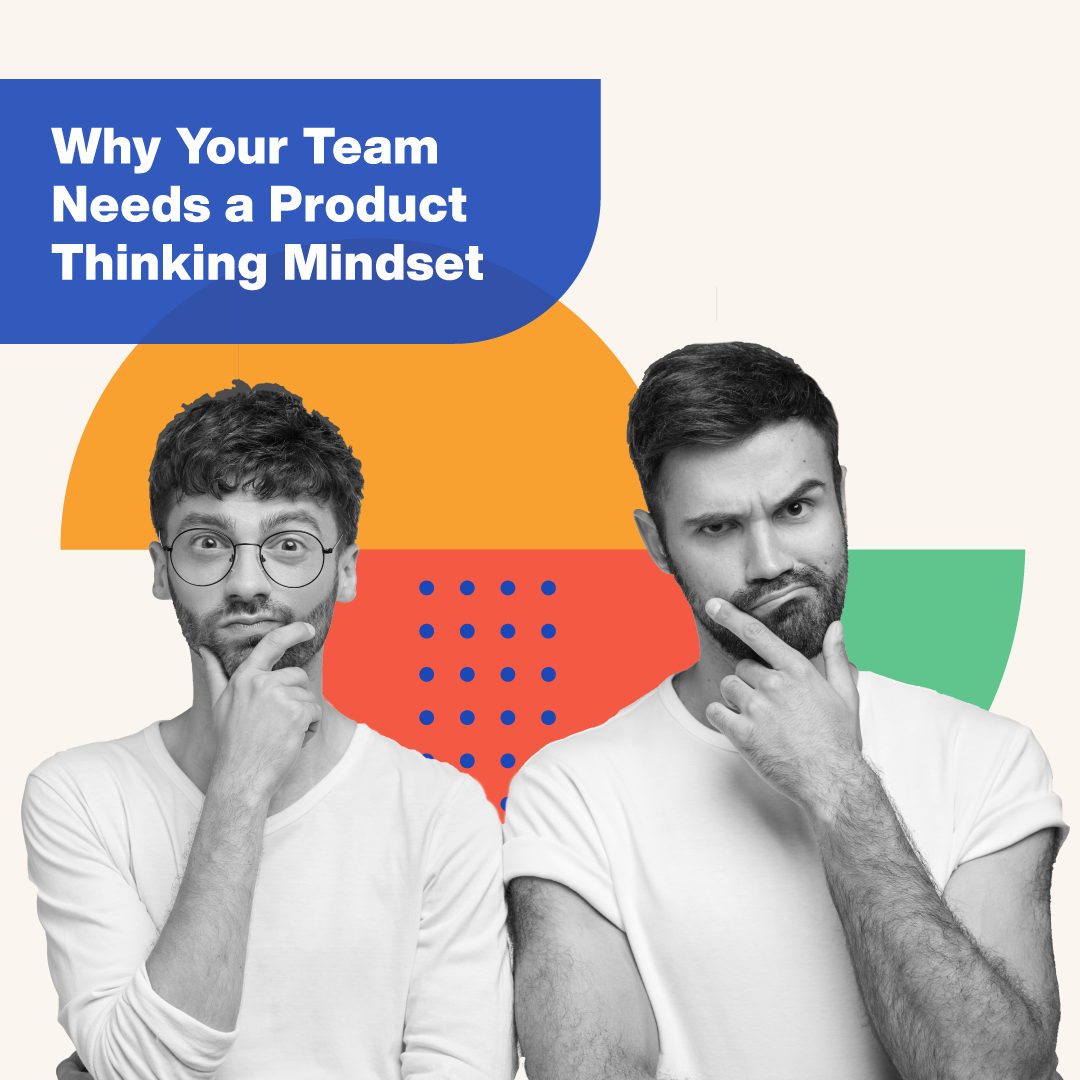Dianne leads the strategic direction for building dedicated teams by strengthening creative partnerships at Maker Lab – a marketing consultancy designed to build decentralised technology-led agency teams, rooted in collaboration with clients, from the ground up. Their cross-functional teams of multidisciplinary specialists are embedded into clients’ teams through digital marketing competencies – from creative strategy, community engagement and events to data analytics to CRM.
Dianne, tell us how you came to join Maker Lab?
I love sharing this story because it demonstrates the power of manifestation and how life provides for us once we put in the time to get clear about what we need.
I worked at a Singapore based start-up a few years back, and we were going through hypergrowth from 330 to 1200 across ten markets. I consider it one of my most rewarding career challenges based on what I learned. But it was non-stop, and I became sleep-deprived fast – I was on the go seven days a week, often for 19hr, from 5am to midnight.
I took a week off to attend my cousin’s wedding in the Bahamas, where I stayed in one of the ocean-side hotels that Bob Marley used to hang out at! While I was there, I read this book written by Mindvalley’s founder – Vishen Lakhiani – “The Code of the Extraordinary Mind”. In it, he outlined a framework called the “The Twelve Areas of Balance” that helps you assess the state of your life. It looks at all areas of your life: family, relationships, work, environment, finances, creativity, mindfulness/spirituality, health and fitness, etc. I was directed to rate each, and the results were scary because everything was super low. I was utterly deflated and overwhelmed, not knowing where to even begin to bring balance to so many areas in my life.
I then started writing about how I wanted to feel in each area and what had to exist to realise those feelings. I knew that work had to change because nothing else would change if it didn’t. I had spent seven years in the technology field by that point, but I realised that’s not going to fill my soul anymore. I was on track with moving ahead with my career in the tech start-up world, but my desire to work with creative people was stronger.
I decided to listen to that quiet inner whisper and accepted a role at a start-up marketing consultancy – Maker Lab – that builds decentralised in-house micro agencies for clients like Google and Netflix. It also provides digital creative production services, so there is always something extraordinary happening.
What did you visualise you wanted in your work life?
I wanted to work in a shophouse, one of these cute historical buildings in Singapore, and I wanted to work with creative people. I wanted to work in an environment where I could work from one site to another and serve different clients. Oh, and the office had to have plants!
Three months later, I walked into an office in a shophouse, and I started working with creative people. There was lots of greenery around, I worked in different locations across town, and I got to work from home for the rest of the week. That was way before the pandemic, proving how ahead of times Maker Lab was in its ways of working.
How was this different to the environment you were in before?
In the start-up I worked in before, there was little trust in letting experts do what they were hired for. I was looking for a place where people are allowed to do what they do best as they create an impact for the benefit of the whole company and the end-users.
What attracted me to Maker Lab was Matt’s (the CEO & Founder of Maker Lab) trust in me. I knew what he was saying wasn’t lip service. He was clear that everyone was trusted to perform at their best. That has become our ethos ever since, and it’s also how we hire and grow talent. We let our people be the experts they are capable of being while mixing their passions at every step of the way.
What are some of the things that have influenced you on the path you have taken in your life?
I am originally from Estonia, a small but technologically advanced country. I was 15 when I first told my parents I wanted to leave for the summer. I just knew that I had to see more of this world and encounter new cultures. In my youth, I volunteered in a small village near Bordeaux and an orphanage in Moscow. I was also regularly involved with CISV – a global non-profit organisation dedicated to building cross-cultural cooperation. Those became the foundation for my desire to live abroad. No wonder then that from the age of 19, I’ve lived in the US, UK and, now, in Singapore.
I’ve also encountered quite a few setbacks when life just got too much. Today I know that those were moments when I got off track from a path I was meant to walk on. Pain and discomfort show me I have to go back to the drawing board, slow down and get quiet to hear that guiding inner whisper.
I’ve been on all kinds of “spiritual shopping sprees” to find the answer, but I find a variety of learning and life experiences, rather than something specific, works for me. But I truly learn the most through other people’s experiences, and that’s why I’ve been involved with pro-bono counselling for the past 7 years. It’s the most rewarding thing – to see someone else wake up to life before your eyes. As they come back to life, I spark up, too!
What is different about the work you do at Maker Lab?
Maker Lab was born out of our founder’s frustration about how disconnected clients are from their agencies and vice versa. It was set up to deconstruct the conventional agency model with over-deflated structures and diluted teams and create more effective agency partnerships. This helps cut back time spent on briefing and invest it into getting the programmes and campaigns up and running faster. Our clients know we are partners, not an agency at the end of the production line.
We deliver technology-led solutions with efficiency at the core, be it a remote dedicated social media team of 3 or a multidisciplinary in-house agency of 50 for some of the biggest culture-shaping brands. This lets us hire people who are fans of the brand and genuinely care about the brand’s challenges, values and results. We also ensure there’s a team and brand culture fit. In my new role as Business Director, I’m now on a mission to bring these creative partnerships to more brands that have been eagerly waiting for the moment when the agency team ‘truly gets them!’
In addition, we help them with the infrastructure that allows them to welcome and, most importantly, trust the people we hire for their accounts. We always say: our teams become part of yours, and you become part of ours!
How does this work in practice?
We flex our frameworks to match the client’s internal processes when unpacking and designing marketing and project resource solutions. Rather than having everything predetermined, we ask clients: “What do your team and brand need? What is the capabilities gap in your current full-time team?” We ensure no overlap and that our teams complement the client’s teams. The same goes for our creative production services offered by our MKL Studio – we enable brands to scale at speed while creating value for spend.
Additionally, in no agency or consultancy is the talent acquisition team part of the project fulfilment team like we’ve set it up at Maker Lab. We practice what we preach by removing the layers and enabling our teams to interact with the client, the end-user, directly. Our acquisition teams are equipped to manage client servicing, so no additional overheads are needed in between.
So do you have an in-house dedicated team of specialists, or do you go and find the talent and build bespoke teams for each client according to what they need?
We build bespoke teams at Maker Lab based on each brief to ensure the brand’s marketing challenges and goals are met. Sometimes it’s just one dedicated talent; at other times, we need to build larger in-house teams (micro agencies) to service clients’ accounts.
Can you give me some examples of success stories by adapting Maker Lab’s new ways of working?
Our work is confidential, and I’d be happy to share more success stories with anyone interested in learning more. Ask them to email me at dianne@wearemakerlab.com. However, below are a few examples of how Maker Lab’s ways of working result in operational and financial efficiencies.
For one of the largest entertainment brands, our 20-people-strong multidisciplinary and hyperlocal social, community and editorial team delivers exceptional results. In other agencies, you would pay for a team of 40. We’ve heard of some clients with an account team of 12-15 delivering 40 assets per channel per month. We have 4 people on a similar account, and they deliver 120 assets per channel per month and have won awards for the work they do.
Our other client, one of the biggest technology brands, couldn’t move forward with paid media campaigns at the speed required, mainly due to how siloed the 4 separate agencies they used before were. We brought the whole process closer to the client by delivering a hybrid model consisting of a few dedicated marketing programme experts who partner with our Maker Lab Studio. We’ve increased efficiencies by 50% and reduced costs by 40%.
Also, for another brand, we built a lean event and content production team of 10 that transformed the brand’s community engagement through a series of events with 10K attendees, over 180M views on a single event live stream and around 700% increase in subscriptions in one year alone.
What kind of talent do you hire for your client’s accounts?
In more traditional companies, because of the structure, we’re often tied to our comfort zones. But not at Maker Lab!
We believe everyone is more capable than they appear on a CV. We find and cherry-pick talents ready to step outside their usual coverage areas, ready to flex their skills and not just ideate and execute in one specific area. For example, designers who are capable of project management and client relations. A traditional agency or consultancy would have many layers between a designer and the client. There could be a Senior Designer, Art Director, Creative Director, Account Manager, Account Director and Project Director.
This is what we mean by multidimensional talent and our belief that everyone can expand their expertise. At Maker Lab, you can expand beyond who you have been and be more than you are. We are looking for talent who are go-getters and self-starters, ready to step up to the challenge.
Also, our hyper-localised and passion focused approach has been so successful, especially in the APAC context. We dig deep to find talents who are fans of the client’s brand. For example, suppose a brand is looking to focus on growing its anime content. In that case, we will find somebody who is a diehard anime fan. You can’t bluff your way around these specific passion areas such as anime, K-Drama, or even retail tech – if you know, you know. When hiring for such projects, we find people who have poured their hearts and souls into knowing exactly what’s happening in that particular space. You have to understand and have a deep-rooted passion for what you’re doing; otherwise, you’ll be caught out quickly.
In such a unique setting, how do talents develop in their careers at Maker Lab?
At Maker Lab, this doesn’t necessarily mean that you’re going up a straight career promotion ladder. Instead, this means you’re able to grow in lateral ways. There’s so much excitement if you start exploring the horizon, not simply focusing on going upwards.
Is it easy to be a multidimensional talent? No, it’s not always easy – you’re constantly challenged to get out of that familiar zone you’re used to. All of our previous employers were structured a lot differently than Maker Lab, and it takes a bit of time to get used to this level of trust as we shape our careers.
Once you embrace these new ways of working, you propel your career to new heights and new horizons. One of my colleagues at Maker Lab comes from a design background but was selected to be the project manager for one of our client’s projects, and after two years, was hired by our Core and Studio team as a Business Operations Director. She is a fantastic example of a multidimensional talent!
Have you noticed changes in what companies are looking for in employees compared to five years ago?
I see more emphasis on finding talent based on their experiences and interests, both in and out of work. Luckily, some companies have been leading the way. Google’s hiring committee focuses on experiences and skills and personal goals, triumphs, and setbacks in life.
That’s also the ethos for hiring at Maker Lab! I’ve coined the term “passion-led recruitment”, which means we add a more holistic lens to the whole hiring process and see everyone as the culmination of accumulated experiences and passions. It’s essential to understand what people care about and are invested in outside of work.
Can you expand on that a little?
I believe we have to start giving people opportunities based on what they are capable of becoming beyond their work profiles, be it their CV or LinkedIn profile. Isn’t it crazy that the format of the CV that we’re so used to today hasn’t changed since the 1960s! That shows that we are too stuck in chronological thinking and have to expand horizontally across all corners, from talent profiling and interviewing to career progression. This goes both ways, from the talent and the employer’s perspective.
People become who they are due to the totality of their life and work experiences and the time they’ve invested into their hobbies and interests. For example, I never discard anyone’s experience of being a barista or a receptionist. On the contrary, I champion and celebrate that because working in customer service provides excellent interpersonal skills.
So what kind of a mentality shift is required to move the needle in the talent space?
For example, the industry often talks about tech recruitment like it’s all about a Computer Science degree, and there certainly are mechanics you need to understand to be on the path, but there are broader ways to approach this. I once hired a Junior Front-End Developer who – after 10 years as a Store Manager at Tesco in the UK – decided to switch careers. He had completed a coding course and had built a personal portfolio of code based on modern coding languages. He had an incredible personality and was just a perfect match for that agency. It was a no brainer.
On the other hand, I’ve been to numerous career fairs where bright developers approach me for jobs at start-ups, but their educational experience is limited to Java or C++ as taught as part of the curriculum. Unfortunately, the education system hasn’t caught up, and talents themselves haven’t taken the time to learn and showcase their skills with technologies that start-ups use these days: HTML5, Python, Ruby on Rails, React.js, Swift. Computer science is a creative, problem-solving discipline. It’s essential to learn the foundation, but the rest is about keeping an open mind and a deep-rooted learning mentality.
How do you envision the future of hiring?
My vision for the future is to become the kind of company that doesn’t accept CVs anymore. Instead, we’d create talent profiles that showcase you, all of you!
Image a world where everyone knows your background story and how your upbringing, life experiences and environments have shaped you. We could avoid so many disappointments and mismatched expectations in meeting rooms! One of my interview questions has always been, “Which personal life event has shaped you the most?” I want to get to know people on a more intimate level even before we hire them.
Could you expand a bit on the role of education in the talent you look for?
Education plays a vital role in our lives: not just the content but the discipline and communications skills that we acquire through learning in an academic setting. However, there is a darker side to what we associate with education. I worked with hiring managers who said things like: “They come from a really good school.” It’s an interesting remark that I often ignore because there is a particular bias around the kind of university or company you’ve worked for before, and I don’t think it should be the sole decision-making factor.
Everywhere you look, there are high performers who didn’t have the resources to attend a particular school but are moving forward in their careers. As history has shown, education alone doesn’t shape people; life does!
At Maker Lab, we see this as another form of diversity and inclusivity. We interview talent who wouldn’t pass the typical recruitment processes or keyword searches and AI algorithms. Yet, we manage to spot and hire exceptional talent who are some of our highest performing employees.
How do we do it? We capture the essence of people through their life and work experiences, interests and the way they articulate their thoughts. The more time they’ve invested in expanding themselves and the more they’ve experienced in life through work and hobbies, the more self-aware they’ve become.
What makes someone stand out for you?
For now, the CV remains the first touchpoint with most of the talent we encounter. When reviewing CVs, it’s like a Google search – it takes good recruiters 0.5 seconds to open and close it because they know if this person is suitable for the role or not. The make or break point for me is often the presentation, the formatting, and whether someone has gone old school or taken a fresher approach to the CV layout. Those visual clues tell whether you have a hint of creativity in you.
The second part is the introduction profile. I always use this example – if you’re a project manager and mention that you deliver projects on time, within a budget and with resources given, you’re simply describing your job. That’s a given, and that’s what you should be able to do. It doesn’t say anything about those extra skills, experiences and belief systems you bring to the table to help diversify the current team as you create impact.
When someone says something along those lines: “I do this because I believe in xyz”, my heart jumps with joy. We’ve come across someone aware of their values and worth. Having a sense of purpose makes a candidate shine through. This isn’t something that can be taught in schools; we have to actively invest our own time to figure this out. Every brand has to find and rigorously stay true to its core mission and values. It’s the same with us!
What are some of the primary soft skills people should work on cultivating for themselves to operate in this new world of work?
There is more urgency than ever to go within, to become self-aware. It’s almost like a personal responsibility we now have in broader society and our communities. Everything in the last two years has shown us we need to slow down and learn to become comfortable being in one place and not rush around 24/7.
A lot has risen to the surface through this collective fear, grief and loss we’ve all experienced. Relationships have been breaking apart or partners coming closer together; there’s been unbearable loneliness or the desire to run away from the proximity of those around us, and depression and addictions have been flaring up. So many of us have arrived at a point where we can’t avoid but address what’s going on inside us.
The skills that come from knowing ourselves are the skill sets we need, but we have to be slow and subtle with this process and gentle with ourselves. There are so many paths to finding out who we are, so find whatever fits you – it doesn’t always have to be meditating in a lotus position; it could be journaling, walking in nature, or arts and crafts. Anything that slows you down!
A final question, and more of a personal one! If you look towards 2030, where would you like to be personally?
I recently participated in a manifestation workshop which focused on the belief that I deserve the best like everyone else. It’s my birthright; it’s everyone’s birthright. We are given everything we need to access joy and happiness, but that doesn’t always mean we get what we want. Our plans and designs can be minute compared to what’s available. I’m working on shifting my mindset around that.
Professionally, some of that will come down to believing that I have permission to succeed, whatever that means. I’m yet to clearly define this for myself. The vision I am holding for myself for 2030 is that I am running or owning something – be it a new business unit or my very own company in a mindfulness space. I’m not attached to what that will look like; I’m more focused on how it makes me feel. I aim to keep those twelve areas of life in beautiful sync with one another as I continue to seek a balance between them. That’s what I’m working for at the moment.







